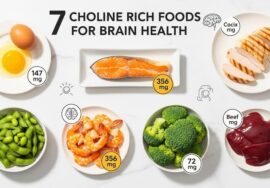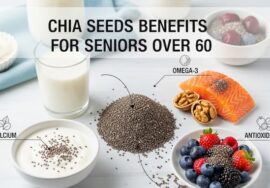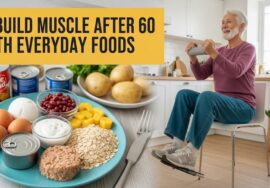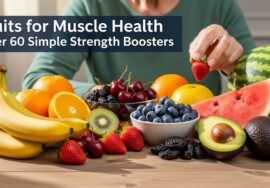Leg cramps can stop you mid-step, and if you’re past 50, you’ve probably felt it — those tight calves at night or that weak feeling when you stand up. It’s frustrating, but here’s the thing: a lot of it comes down to nutrition. Muscles need certain vitamins and minerals to work right, and as we get older, we don’t always get enough of them. Exploring the right vitamins for leg cramps might be essential to maintaining your muscle health.
Table of Contents
- Why Legs Give You Trouble as You Age
- Vitamin D – Keeps Legs From Feeling Wobbly
- Magnesium – Best Friend for Cramp Relief
- Potassium – Calms Muscle Twitching
- Calcium – Not Just for Bones
- B Vitamins – Nerves Need Them
- Vitamin E – Better Blood Flow
- Vitamin C – Helps Muscles Recover
- Small Daily Habits That Help Too
- Quick Questions Seniors Ask
Why Legs Give You Trouble as You Age
Muscles change with age. They tire faster, don’t bounce back like they used to, and blood flow slows. Some medicines mess with mineral levels too. And let’s be honest — many seniors eat lighter meals, sometimes skipping important foods. That’s why leg cramps show up more often. The fix? Give your body the nutrients it’s missing.
Vitamin D – Keeps Legs From Feeling Wobbly
Low vitamin D is sneaky. It doesn’t just hurt bones; it makes muscles feel weaker. If balance feels off or legs feel shaky, this could be why. Sunlight helps, but older skin doesn’t make enough vitamin D. Fortified milk, eggs, or a supplement (if your doctor says yes) can really help.
Magnesium – Best Friend for Cramp Relief
If you wake up with tight calves, think magnesium. It helps muscles relax after they tighten. Without it, they just keep cramping. Almonds, spinach, pumpkin seeds — easy fixes. Some seniors notice big changes with a magnesium supplement, but always ask your doctor first.
Potassium – Calms Muscle Twitching
Potassium keeps muscles and nerves working together. Low potassium often shows up as calf cramps or twitchy legs. Bananas, sweet potatoes, and avocados are simple to add, and they taste good too.
Calcium – Not Just for Bones
Strong bones make you steady, but calcium also helps muscles contract. Too little can mean shaky legs or even spasms. Milk, yogurt, or fortified plant milks are easy ways to get it in.
B Vitamins – Nerves Need Them
Tingling or numb legs? Could be low B12. It’s common because older bodies don’t absorb it as well. Eggs, lean meat, and fortified cereals are great, but some people need B12 shots. B6 helps too, keeping nerves and muscles talking to each other.
Vitamin E – Better Blood Flow
If legs feel heavy or achey, poor circulation might be part of it. Vitamin E helps blood move better. Nuts, seeds, and olive oil — simple and healthy.
Vitamin C – Helps Muscles Recover
Cramps and sore muscles need to heal. Vitamin C helps with tissue repair and supports tendons. Citrus fruits, strawberries, or bell peppers are easy adds.
Small Daily Habits That Help Too
- Drink water — dehydration makes cramps worse.
- Stretch your calves and hamstrings every day.
- Check with your doctor about meds that lower mineral levels.
- Eat full, balanced meals, not just snacks, so vitamins absorb well.
✅ Quick Questions Seniors Ask
1. Which vitamin works best for leg cramps?
Magnesium and vitamin D are top for muscle strength and relaxation.
2. Can low vitamin D make legs weak?
Yes, it’s linked to poor balance and weak muscles in seniors.
3. Are bananas really helpful?
Yes, they’re full of potassium, which calms tight muscles.
4. Should seniors take calcium just for bones?
It helps bones and muscles, so yes, it’s important.
5. Can low B12 cause tingling legs?
Absolutely, low B12 can cause nerve-related leg problems.
6. Does vitamin E help with cramps?
It improves circulation, which can reduce cramps over time.
7. How much water should I drink?
Six to eight glasses a day, unless your doctor says otherwise.
8. Are multivitamins enough?
Not always — specific deficiencies need targeted vitamins.
9. What foods give magnesium fast?
Spinach, almonds, and pumpkin seeds are great.
10. When should you see a doctor?
If cramps happen a lot, hurt badly, or make walking hard, get checked.








